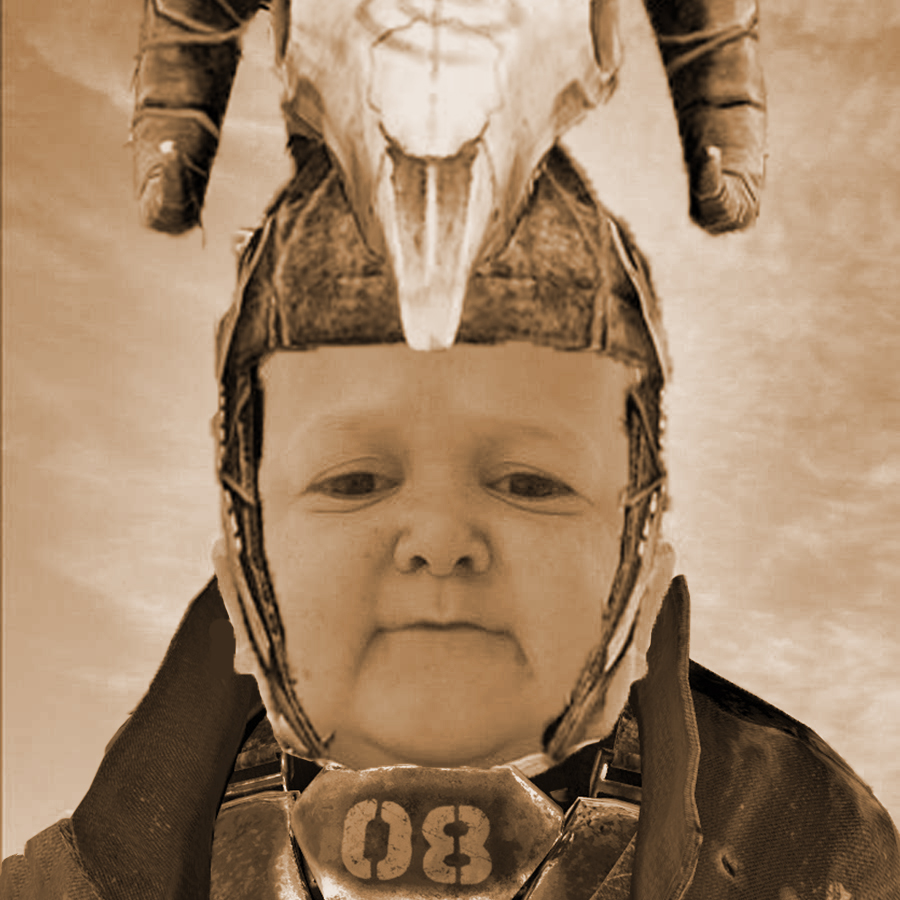“Standards for the exact length of an inch have varied in the past, but since the adoption of the international yard during the 1950s and 1960s the inch has been based on the metric system and defined as exactly 25.4 mm.”
deleted by creator
“In metric, one milliliter of water occupies one cubic centimeter, weighs one gram, and requires one calorie of energy to heat up by one degree centigrade—which is 1 percent of the difference between its freezing point and its boiling point. An amount of hydrogen weighing the same amount has exactly one mole of atoms in it. Whereas in the American system, the answer to ‘How much energy does it take to boil a room-temperature gallon of water?’ is ‘Go fuck yourself,’ because you can’t directly relate any of those quantities.” ― Josh Bazell, Wild Thing
Sorry I’m new here. How do I upvote this twice? /s
Just press it twice honey /s
Defined, not based
Thank you! That really bothered me about the title - it implies that imperial units started with metric units.
Imperial units are dumb. We, in the US, would be much better off if we just bit the bullet. I am sure if an effort were made, however, it would become another insane political squawk point about American superiority.
Except Celsius, both scales are arbitrary (and no, there is no advantage to freezing and boiling point of water being 0 and 100).
How is 0°C for freezing and 100°C for boiling arbitrary? That seems to me like the most reasoned way to do it.
The only temperature scale that isn’t arbitrary is Kelvin, because it has an actual absolute zero. So 0 in Farenheit is freezing point of water and salt solution, which does have scientific application. What difference does it make? The compression of the Celsius scale forces you to use decimal points for any kind of reasonable daily use which sucks. I am not saying Fahrenheit is better, I am saying neither is better. They are both arbitrary. It doesn’t matter which one you prefer, it’s just what you are used to. The other metric units are objectively superior and given to greater precision.
What do you mean by decimal use? I live in a country who has always used C°, and never in our life we had to use decimal points for everyday usage. All boilers and ovens and kettles and thermostats and lab equipment is used with whole numbers.
Yeah, basically the only time we encounter decimal in celsius is when measuring body temperature.
I would say Kelvin is arbitrary too. It has the temperature of 0K at a natural, non-atbitrairy point, but each increment of 1K is the same as 1°C and thus just as arbitrary as the Celcius scale.
Rankine scale slander
You got me there.
Oh and do you know how much is 1K in the scale?
There are multiple temperature scales that set zero at absolute zero. The “width” of their degrees vary arbitrarily. Because of this, Kelvin is still an arbitrary scale.
The other metric units are objectively superior and given to greater precision.
Eh, I think you need to rethink that. Show me a measurement in metric, and I can show you a smaller measurement in US Customary. (The reverse is also true, of course. Any measurement I give you in decimal inches, you can show me a smaller one in metric). Both systems are capable of an arbitrary degree of precision. Precision is certainly not one of the benefits of metric.
Metric is not “objectively” superior. Metric’s superiority is based on the subjective idea that base-10 scalability is a desirable quality. There are many, many reasons supporting that idea, but there are also certain circumstances for which base-10 is not particularly well suited. Scaling by a factor of 3, for example.
The idea of base-10 scalability effectively prohibits the metrification of angular measurements: geometry is extraordinarily ugly when you need to represent 1/6th of a circle comprised of 1, 10, 100, or 1000 Degrees, since no power of 10 is evenly divisible by 6. When you can’t even represent an equilateral triangle without repeating digits, your system won’t be adopted for that use.
Now, if we had evolved with 12 fingers, and developed a number system with 2 additional digits, 6 6 would equal 10. (6 6)^2 would be 100. We’d have an entirely different multiplication table, but a duodecimal metric system would be extraordinarily elegant. With 2 more fingers, we’d have metric clocks.
Human comfort is more generally relevant that the freezing and boiling points of water. In weather, 0F is f’ing cold and 100F is f’ing hot.
same in celsius, 0 is damn cold and 100 is damn hot
I wouldnt describe 0 Celsius as “fucking cold” where im from cause it gets so much wors but ill give you 100 Celsius
That’s why they’ve invented negative numbers
LOL. REEEEEEALLY damned hot!
Not for a Finn. 🤣
Yeah, I agree, it’s a human scale made by humans for humans. 100°F will be hot for me whether I’m on Earth or Mars, but 0°C/100°C is only the freezing/boiling point of water on Earth.
I think the optimal solution is to use Kelvin for scientific purposes and Fahrenheit for everyday use, but that’s just the American speaking in me.
Because it’s based on the average atmospheric pressure of one planet? (that and there being an actual physical zero point for temperature)
Pegging Celsius to freezing/boiling point of water makes it VERY easy to calibrate thermometers. That’s a huge advantage that makes it so anyone with a freezer and stove have a great reference point for calibration.
What’s the advantage to using 0 for freezing than 32 or 100 instead of 212? If anything there is a higher precision built into the whole numbers on the Fahrenheit scale for the sake of calibration. It would only be an advantage if you couldn’t wrap your head around a different number to represent those states.
EDIT: nah it doesn’t matter. Have a good one.
Decimals exists, and they are not terrifying or difficult to understand. The terror of using decimals is a strictly American phenomenon.
Pretty much only meter is arbitrarily taken. The rest is based on that. One kilogram of water is the same as one liter of water. One cubic meter is the same as 1000l or same weight as tonne. Etc. All the other units derive from that. Pressure is force over meter squared, or any other surface. Etc.
If the rest of the measuring methods are themselves based on something that is arbitrary, everything is arbitrary.
The kg was redefined not long ago to Planks Constant. It is not arbitrary, but a measurement of a natural occurring phenomena.
[https://youtu.be/Oo0jm1PPRuo](Veritasium The New Kilogram)
Here is an alternative Piped link(s): https://piped.video/Oo0jm1PPRuo
Piped is a privacy-respecting open-source alternative frontend to YouTube.
I’m open-source, check me out at GitHub.
Well, there are different levels of arbitrariness. :-)
The situation in Europe in the late 1700s and into the 1800s was that most countries had their own measures of inch, gallon and pound etc. The foot could easily vary more than 10% between countries. The naming of units was not consistent. And even seemingly specific measures differed, even inside one country, like a beer barrel being a different number of gallons than an ale barrel, or a barrel of fish being being of a different size than a barrel of grain.Just in Norway we had the Norwegian foot around 31,4 cm, being a variation of the Danish foot, that was a misreading of the Rheinish foot - but they were at least fairly similar. However, for shipping purposes, the English foot was used for the measurement of ships (important for customs and taxes), while also a bigger-than-English foot was used for measuring timber to be exported, accounting for a shrinking/drying of the timber during transport. The Swedish foot was 29.7 cm, and it was curiously divided into only 10 inches - making the Swedish inch very long and the Swedish foot fairly short. And I don’t think Scandinavia was particularly chaotic in this respect.
The whole thing was a mess, of course. So the idea of using the meter invented by the French was attractive (even though it was the French who invented it). No country’s definition of foot would be able to gain universal acceptance. The meter was originally aimed at being one ten-millionth of the distance from equator to the north pole of the earth. Nobody got ‘their’ foot or inch (or according to some legends: the foot-length or thumb-width of some famous, historical king) as the standard, so it was generally more acceptable.
Looking back, I predict that no metric-based country will ever go from the current strict ten-based increments of measures back to the imperial system with mainly two-based increments, with the occational factor of 12 (inch/feet), 11 and 5 and 3 (a mile is 8 furloughs, each of which is 10 chains of 22 yards, the yard being 3 feet.
It is SO not going to be the next measuring system of a country were the metric system have gained foothold.
Yeah, I know they managed to standardize the imperial measures after everyone but UK and US stopped using them. But it is still not going to happen.
I won’t think anyone was trying to say that any metric unit nation would convert to imperial (unless I missed something). It’s just unfortunate that it is so difficult to get imperial nations to convert to metric since it would make life easier for the very people who refuse to change (in the long term of course, short term would be chaos).
Quite true, and I certainly hope we are.moving further away fro the imperial system.
I am sorry I slid into a rant about the imperial system, but my initial motive was to show that for historical reasons, there is a lot more arbitrary choices in the imperial system then the metric system.
Then by that definition everything is arbitrary and just a poor excuse to avoid changing something archaic. There’s a reason SI system was invented, because people noticed a trend and a need for units to have properties that make them easy to understand, calculate and convert.
Saying that ultimately the metric system is based on something arbitrary isn’t an attack on the system or a reason not to use it.
Specifically came here to mention the “Celsius is dumb” exception to the “metric is better” argument!
An effort was made several decades ago, but it nevwr stuck.
I use both metric and imperial for work. But the issue is changing every single street sign, updating all of our school material, etc would cost the country billions of dollars and it just isn’t worth it at this point.
We could start by having both on new signs. Over many years the majority of signs would eventually have both. Then, maybe 15 years from now, we could drop the imperial measurements from all new signs. I think that would help with cost.
(Adjust timeframe based on the average useful life of a sign plus an extra margin.)
That’s why metric should be added to the curriculum rather than replace imperial. Kids are still forced to learn standard and cursive writing. Learning Metric along with Imperial isn’t that damned hard.
I did learn metric in school, did you not? I’m in Ohio, not sure if it’s different elsewhere. Typically it was tied to physics and chemistry, but still learned it.
I learned it in a very precursory way. Granted I’m pushing 40, so there’s been 21 years of curriculum advancement since I graduated high school.
I’m older than you and learned both of them in school.
Probably my shitty podunk schools then.
We were taught metric in high school science and physics. However, it should start younger.
That surely explains why no other countries have switched to metric. /s
Signs are the tip of the iceberg.
Every nut and bolt being made and all the tools for them.
Every tool that does any measurement.
Every scale.
Every gas pump.
etc. etc. etc.Hey will you pass me that 3/16ths? No wait, make that a 3/8ths. No wait, let’s try one size up 7/16ths… [kill me]
I prefer whichever scale is more granular. So, for me, I’d prefer to keep Fahrenheit for temperature, but change to metric for linear/volume/speed measurements. I like knowing that I can look at the first number of the weather forecast and immediately determine what kind of clothes I should wear for the day. Celsius seems fine for everything with the exception of weather.
Perhaps you’re not aware, but we don’t use Imperial units in the US; we use US customary units.
You’re just being pedantic for the sake of being pedantic. Everyone refers to the units used in the US as imperial units.
Then why just not use metrics directly?
Probably because the current system works for them, and changing it would cost political capita that could be used elsewhere.
We do, everything that matters is metric but societal change is hard. We can’t even get boomers to vote for the party that DOESNT want to take away their social security. How can we get them to use liters after a lifetime of gallons?
Because this title is kind of BS. The imperial system measurements are not based on the metric system, in the mid 20th century the inch was redefined as being 25.4mm. Because the world was in the process of standardizing measurements and people didn’t want to give up imperial units, so an accurate reference point was established. The undstandardized imperial measuring system was around long before the metric system was developed.
That was my comprehension as well, it just seemed highly impractical to define a completely unique system (in this case imperial) while there is a largely used alternative (metric). Both systems coexisting makes much more sense.
So they can charge people twice as much for mechanics tools. 😁
Yep, US imperial is just metric with extra steps.
The only nice thing about metric is the base 12 system with feet and inches.
12 divides quite nicely by 2, 3, 4, and 6. It makes it a little more intuitive to say “4¾ inches” instead of “12.065 centimeters”.
Of course, all that goes out the window when you start using a metric base and no longer have to convert inches to cm, and stop basing your builds on feet and inches.
I’m thinking, if we’re sharing pedantic data and the SI unit of distance is the metre, isn’t the inch technically defined as exactly 0.0254m?
To get even more pedantic…
It’s defined on how far light will travel in a vacuum in the time it takes caesium-133 to do a certain number of transitions between hyperfine ground states.
It’s cool how almost all units of measure are defined on caesium
Why is it based cesium?
It’s just very stable and consistent, iirc
I always thought this was an early capitalism: imperial was just another “closed ecosystem” like Apple products.
Yeah, but that’s a stupid number and a pain in the ass to work with haha.
I asked ChatGPT
Prompt:
Write me a comment thread of two redditors arguing between the merits of using Celsius or Fahrenheit for their respective user
Response:
Redditor1: I can’t believe people still use Fahrenheit! Celsius is so much better and easier to understand. It’s based on the freezing and boiling points of water, which makes logical sense. Who needs Fahrenheit anyway?
Redditor2: Are you kidding me? Fahrenheit is way more practical! It provides a finer level of temperature precision and is better suited for everyday weather measurements. Celsius is just too limited with its smaller scale.
Redditor1: Precision? That’s just unnecessary! Celsius provides a clear understanding of temperature without the need for arbitrary reference points. The fact that water freezes at 0°C and boils at 100°C makes it intuitive and widely adopted worldwide. Plus, it’s used in scientific research and international standards.
Redditor2: Sure, Celsius might be more widely used internationally, but that doesn’t automatically make it superior. Fahrenheit has its advantages, especially when it comes to weather forecasting. The Fahrenheit scale allows for a more nuanced representation of temperature differences, which can be crucial when determining how hot or cold it actually feels.
Redditor1: But why complicate things with a scale that relies on arbitrary points like the freezing and boiling of brine solution and the human body temperature? Celsius is based on a fundamental and universal aspect of nature: water. It makes conversions between units easier and eliminates the need for mental calculations.
Redditor2: I understand your point about simplicity, but Fahrenheit offers a wider range of temperature values for everyday temperatures. It allows us to have more precise differentiations in weather forecasts, which is important for people who need accurate information for planning their day. Besides, those who grew up using Fahrenheit find it easier to relate to temperatures on that scale.
Redditor1: Well, I think the scientific community would disagree with you on that. Celsius is the standard in scientific research, and it’s taught in schools worldwide. It’s consistent, logical, and eliminates the need for multiple temperature scales. It’s time for Fahrenheit to step aside and let Celsius take over.
Redditor2: Scientific research is just one aspect of temperature measurement. Fahrenheit has its place in everyday life, especially in countries that have been using it for generations. It’s not about letting one scale take over the other; it’s about recognizing the benefits and practicality of both. People should have the freedom to choose what they’re most comfortable with, whether it’s Celsius or Fahrenheit.
Redditor1: Fair enough, personal preference does play a role, and people should have the freedom to choose. However, from a global perspective, Celsius provides a more standardized and universal approach to temperature measurement. It’s easier for international communication and understanding, which is increasingly important in our interconnected world.
Redditor2: I can respect your viewpoint on standardization, but let’s not forget that there are countries and regions where Fahrenheit is deeply ingrained in their culture and everyday life. It’s not just about personal preference; it’s about respecting diversity and different historical contexts. Both Celsius and Fahrenheit have their merits, and it’s up to individuals and communities to decide which one suits them best.
























